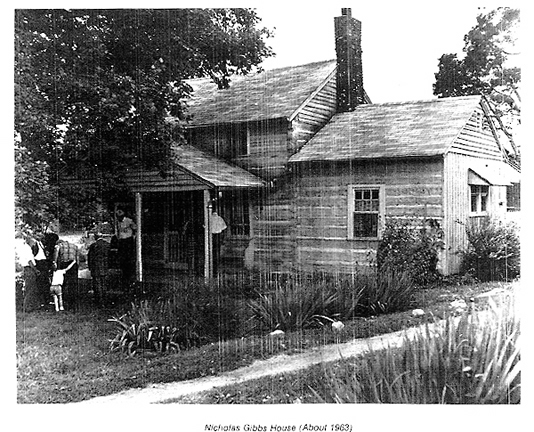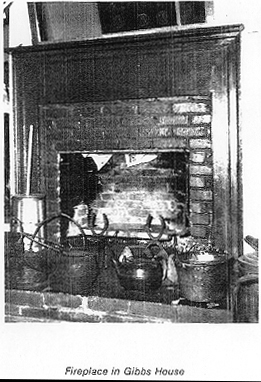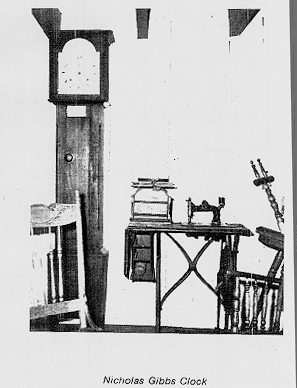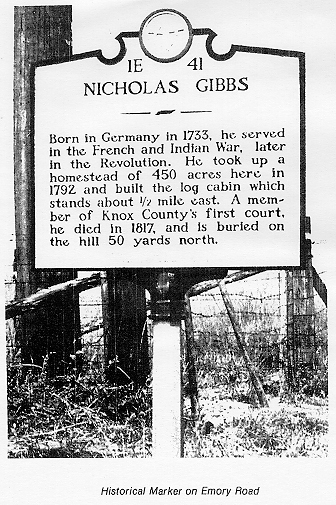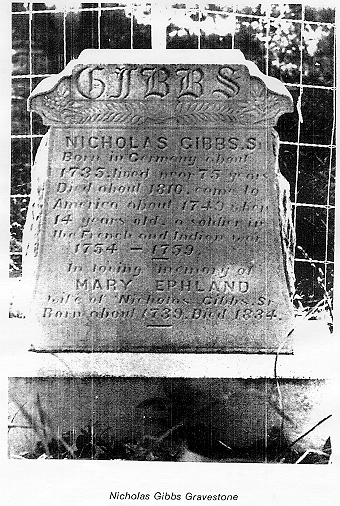Menu Items
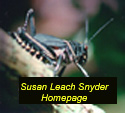



![]()
Generation 9
Generation 1 |
Generation 2 |
Generation 3 |
Generation 4 |
Generation 5 |
Generation 6 |
Generation 7 |
Undisclosed |
Undisclosed |
Undisclosed |
Terry Donnell Sharpe |
Julius Henry Sharpe |
Henry Albright Sharp |
Elizabeth Albright |
Generation 8 |
Generation 9 |
Mary Gibbs |
Johann Nickel Gibbs Jr. |
199. Johann Nickel Gibbs Jr. (Nicholas Gibbs Jr.) (Married Mary Efland (Ephland) (#200) about 1764 in Orange County, NC.) (There are two listings in U.S. and International Marriage Records 1560-1900 for Johann's wedding date. One says 1763, the other says 1764).
Born: 29 September 1733 in the village of Wallruth, near the town of Krumbach, Duchy of Braden, Germany of Johan Nichlab Gibb (Johann Nickell Gibbs) (John Nicholas Gibbs, Sr.) (#397)& Anna ___ (#398)(This information about his birth date and place of birth is quoted from Nicholas Gibbs and his descendants, 1733-1977 by Nicholas Gibbs Historical Society, 1977, Ohio Historical Society Library) (Johann's birth year of 1733 is also verified in U.S. and International Marriage Records 1560-1900)
Died: 1817; He is buried in an old cemetery on Emory Road, near Harbison’s Cross Roads, North Knoxville, Tennessee.
[His siblings include:
Mary Gibbs: Born: ? Duchy of Braden, Germany. Died: ? Duchy of Braden, Germany;
Catherine Gibbs: Born: ? Died: ?
Abraham Gibbs: Born: ? in Wallruth, Township of Krumback, Duchy of Baden, Germany. Died: ? probably in Fredericktown, Maryland;
Peter Gibbs: Born: in Duchy of Baden, Germany. Died: Before 1747 in Germany].
Miscellaneous: Below are several statements that have been posted on the internet concerning Johann and his family. Some of the details in these statements have not been confirmed by Susan Snyder (#2), while others are verified by a book, Nicholas Gibbs and his descendants, 1733-1977 by Nicholas Gibbs Historical Society, 1977, Ohio Historical Society Library... quoted in blue type below.
One internet source states that the "Gibbs family had once been courtiers at the royal court when the Stuart dynasty held power in England and held great estates there. Gen. G. W. Gibbs, a son of Nicholas, in a letter to the first William Gibbs McAdoo, in 1846, stated that his family left England to save their heads at the time their king lost his. From this bit of information, we believe that the Gibbs family migrated to Germany when Cromwell came to power and caused King Charles I to be executed."
Another internet reference states: "A family letter written to May Powers on January 28, 1949 by W. H. Thomas about the Gibbs family states: during the War of The Roses . . . 'They were Scotch, came to England with the Stuart Kings, were Royalists and left to save their heads when Cromwell cut off the head of their King, Charles I. The family evidently possessed wealth and power under the Stuart dynasty.
Nicholas came first to Pennsylvania . . . he sojourned for sometime on Antietam Creek in Chowan County, Maryland where he married Mary .. . they all came to Orange County North Carolina in the 1750's . . . The Gibbses left Alamance in 1791 and came to Sharp's Station in Big Valley."(Tennessee)"
A third internet source states that "Nicholas Gibbs and his wife moved to upper Knox County, Tennessee, after Indian hostilities ceased, where he purchased many acres and raised a large family. The Gibbs community and Gibbs High School bear his name. Gibbs died in 1817 and was buried on the home place at near Harbison's Cross Roads. His log home, built in 1792, still stands."
The statement above that Nicholas married Mary in Maryland does not agree with the passage quoted below from page VII of Nicholas Gibbs and his descendants, 1733-1977 by Nicholas Gibbs Historical Society, 1977, Ohio Historical Society Library, “The grandfather of Nicholas Gibbs left England because of religious and political reasons to save his head when his King, Charles I, lost his in 1649. He married a woman in Amsterdam and never went back to London, but sought refuge along the Rhine River in Germany, and it was in the village of Wallruth, near the town of Krumbach, Duchy of Braden, that Nicholas was born Sept. 29, 1733.
In the original Gibbs family there were three brothers, Peter, Abraham, and Nicholas, and two sisters, Mary and Catherine. Abraham and Nicholas came from Germany to America, Nicholas coming to America in 1747and Abraham sometime prior to that time. Peter died in Germany before Nicholas left for America. Abraham settled in the town of Fredericktown, Maryland and his descendants were residents of Baltimore, Maryland, in 1846. Nicholas, named for his father (Nicholas of Germany), became offended with his father in some way and left home for America at the age of 14 (1747). He left home with 30 guineas ($150.00 in American money), which the captain of the ship told him was just half enough to pay for his fare across the ocean, so Nicholas sold his time to pay for the other half. After working his time out for the other half of his fare, he joined the English army and served five years in the French and Indian War. While he was a soldier, his brother, Abraham, heard of him and sought an appointment with him. Nicholas had no recollection of ever having seen his brother, so he applied the criterion his mother had given him by which to identify Abraham, should ever they meet, which was a spot or scar on Abraham's head. Finding the spot on Abraham's head, he at once claimed him as his brother. After serving his tour of five years, Nicholas went to Frederickstown, Maryland, to live with his brother, Abraham. However, his brother's wife and he did not harmonize, so Nicholas went to North Carolina and settled in Orange County, where he married Miss Mary Ephland, and where part of his family was grown and some married before he came to East Tennessee to settle 12 miles northeast of Knoxville,Tennessee, near House Mountain.
Nicholas sold his property in Orange County, North Carolina, on October 12, 1791, to Obed Green. His daughter, Catherine, married John Holmes on October 17, 1791 and it is believed that shortly after her marriage, he and his large family moved to East Tennessee and settled in what is now Knox County. His old home is still standing near Harbison’s Cross Roads (1952)."
John Nicholas Gibb (#397) came from Scotland to England, then to Holland and Germany. Son Nicholas was born in Germany and came to America in 1747 at 14 years of age. He spent time in MA and PA; joined English Army, 5 years in French and Indian War (1754-1759); went to Fredericktown MA to live with brother Abraham; to NC Orange CO and married Mary Efhland. Became prominent in early history of Knox Co TN. His son, George Washington Gibbs, was the father of Colonel Charles Nicholas Gibbs, Secty of State for TN. (Source: ancestry.com: Compton/Roehrman Tree owner: Icqc717)
Below: Pictures of Nicholas' Home about 1963. Source: Page V and VI, Nicholas Gibbs and his descendants, 1733-1977 by Nicholas Gibbs Historical Society, 1977, Ohio Historical Society Library.
"According to Tennessee records, Nicholas bought 450 acres of land in Hawkins County on March 6, 1792, for 200 pounds, ‘including Beaver Dam Fork on Beaver Creek.’ This section of Hawkins County later became part of Knox County, when on June 11, 1792, Governor Blount issued an ordinance defining the lines of Greene and Hawkins Counties, and laying off two new counties, Knox and Jefferson.
On July 18, 1792, the first court in Knox County was held by James White, et al. On April 25, 1796, the first County Court was begun under the State Constitution, at which time Nicholas Gibbs was one of the Justices of Peace commissioned by the governor.
On April 25, 1796, Nicholas Gibbs was given a grant of 100 acres on Beaver Dam Creek (Knox County) for ‘services in the Continental Line’ (Land Grant Records, Raleigh, North Carolina, Book 88, Page 193, Grant 257, dated March 7, 1796). This grant is also recorded in Knox County, Tennessee, Book B, No. 2, Registrar’s Office, and his name appears on the Knox County roll of Revolutionary War soldiers as having participated in the Battle of King’s Mountain.
Both Nicholas Gibbs and his wife are buried in an old cemetery located on Emory Road, near Harbison’s Cross Roads, North Knoxville, Tennessee. In 1915 stones were erected on the graves by some of his descendants.
Judging from the Knox County Court records, Nicholas Gibbs took an active part in civic affairs until his death, which presumably was in 1817, as his will, dated May 19, 1810, was probated in the July, 1817, Sessions Book 2, Page 343, Knox County, Tennessee. This will lists all of his children as follows: seven daughters, Mary (#100), Sarah, Catherine, Silphenia, Elizabeth, ‘Sophia’s heirs,’ and Barbara; sons, John, David, Jacob, George, Nicholas, and Daniel. At the death of his wife, any remaining estate, land excepted, was to be divided equally among his seven daughters. His sons, John and Nicholas, were appointed executors and witnesses were sons Jacob Gibbs and Daniel Gibbs."
[Note: In reading through Nicholas Gibbs and his descendants, 1733-1977 by Nicholas Gibbs Historical Society, 1977, Ohio Historical Society, Susan Snyder (#2) discovered a story involving a Peter Graves, Sharp's Station (a Fort in Hawkins County, later Knox County, Tennessee), and Nicholas Gibbs. The story is quoted below.]
"It was on November 13, 1794, that Peter Graves thought he heard a turkey gobbling in the thick woods above Sharp’s Station. Deciding to investigate, he crept to a point near two huge boulders and as he did so, he was shot in the head at such close range by an Indian that the hair on his head was powder burned. After scalping him, the savage is said to have thrust a sword into his body with such force that six inches of the point was broken off and left in his body. He was the first person buried in the cemetery near Sharp’s Station.
The slaying of Peter Graves was thought to be an act of revenge for the help furnished by Sharp’s Station (Fort) men in retaliation for the killing of Thomas and James Gilliam near Bull Run Blockhouse in Raccoon Valley.
For some time after that the people around the Station were on the lookout for Indians, but all was quiet. Early in December, the weather being mild, several of the Sharps crossed the Clinch and Powell Rivers to a saltpeter mine, said to have been owned by them, for niter for gunpowder. Nicholas Gibbs, Henry Sharp (Sr.), Conrad Sharp and Levi Hinds remained at the Station, as well as several small children, women and girls, and several boys, from nearby cabins. Just before dark, Gibbs heard several owls hooting on the mountain above the Station, arousing his curiosity and convincing him and the others that the Indians were again on the prowl. Placing the small children in one of the cabins, the women, girls and boys were divided into several groups to ward off a possible attack. Suddenly all was quiet and shortly thereafter the chain at the stockade gate rattled and those inside were ordered to open the gate. This aroused the dogs and they rushed around the stockade barking madly. The Indians’ order to open the gates was met with gunfire, which continued all night long. As morning came, the Indians retreated leaving their blood spattered all around the Station, but there were no injuries suffered by those inside the stockade. There were bullet holes left in the old log fort which served to remind the occupants for a long time of the battle waged at Sharp’s station.
References: Knoxville Gazette, December 13, 1794, Peters, Know Your Relatives, p. 123, and Thomas, W.H., Big Valley Educator and Historian.”
Below is a quote from Nicholas Gibbs and his descendants, 1733-1977 by Nicholas Gibbs Historical Society, 1977, Ohio Historical Society, concerning Nicholas' will:"His will was dated May 19, 1810 and probated in the July 1817 Sessions, Book 2, p. 343, Knox County, as follows:
'First I give and bequeath to the earth my body and my soul to God who gave it, and to be buried in a christian manner, secondly I wish all my just debts to be paid out of my estate, - Thirdly I give and bequeath to my wife Mary Gibbs, the balance of my estate of moveable property, and land during her natural life to be sold after my death, any part or the whole of my moveable estate at the direction of my Executor, and the procedes let to my said widow as need may require at their discretion and the profits of said land to be towards her maintenance during her life, at my wife’s death any remaining estate all my land excepted to be divided as follows, fourthly I give and bequeath to my six sons, namely, John, David, Jacob, George, Nicholas and Daniel one Dollar each and fifthly I give an bequeath to my seven daughters to wit - Elizabeth, Mary (#100), Sarah, Catharine, Silphenia and Sophia’s Heirs and Barbara, all the remaining Estate to be equally divided amongst them and I hereby make and ordain John and Nicholas Gibbs my Executors of this my last Will and Testament set my hand and seal the day and year above written.
'Signed and sealed published and declared by the said Nicholas Gibbs Testator as his last will and Testament in the presence of us who were present at the time of signing thereof.Nicholas Gibbs (Seal)
Attest
Jacob Gibbs
Daniel Gibbs'The last will and Testament of Nicholas Gibbs deceased was produced to Court for probate, whereupon Jacob Gibbs and Daniel Gibbs the subscribing witnesses thereto made oath that they saw the said Nicholas Gibbs deceased sign seal and heard him pronounce publish and declare the same to be his last Will and Testament, and that he was at the time of publishing the same of sound mind and memory according to the best of their Knowledge and belief, which will is ordered to be recorded and is these words to wit 'In the name of God Amen, I Nicholas, senior of the State of Tennessee and Knox County being of sound and perfect mind and memory blessed be God do this nineteenth day of May in the year of our Lord one thousand eight hundred and ten do make and publish this my last Will and Testament, to Wit: '
Letters Testamentary awarded John Gibbs as Executor of Nicholas Gibbs’ estate. Since Nicholas Gibbs, Jr. was no longer living at the time of his father’s death, John became the sole executor of the elder Gibbs’ will.
Inventory of the estate of Nicholas Gibbs - Reserved for the use of the widow - 1 Bason 2 plates 3 spoons, 2 piggins 1 iron, pot 1 skillet 1 Tea Kettle, 1 Coffee Mill 1 Looking Glass, 1 pair of tongs 1 pair of Cards, 1 plow, 1 Saddle 4 forks, five knives 1 pair of steel - 1 small trunk 2 Books, 1 pair of Dogs 1 _______ 1 reel, 1 cask 1 dish, 2 Beds and furniture Chest.
First Monday of July 1817John Gibbs Ex."
Below, these pictures, appearing on page IV of Nicholas Gibbs and his descendants, 1733-1977 by Nicholas Gibbs Historical Society, 1977, Ohio Historical Society Library, are of a historic marker and Nicholas' and Mary's tombstone. [Note: The historic marker and the tombstone do not agree on the year he died; but, based on the probate of his will, the correct year was 1817.]
GIBBS
NICHOLAS GIBBS. Sr
Born in Germany about
1735. lived near 75 years
Died about 1810. come to
America about 1749 when
14 years old. a soldier in
the French and Indian war
1754-1759
_____
In loving memory of
MARY EPHLAND
wife of Nicholas Gibbs. Sr
Born about 1739. Died 1834
Contact person for this website is Susan Snyder: susanleachsnyder@gmail.com
